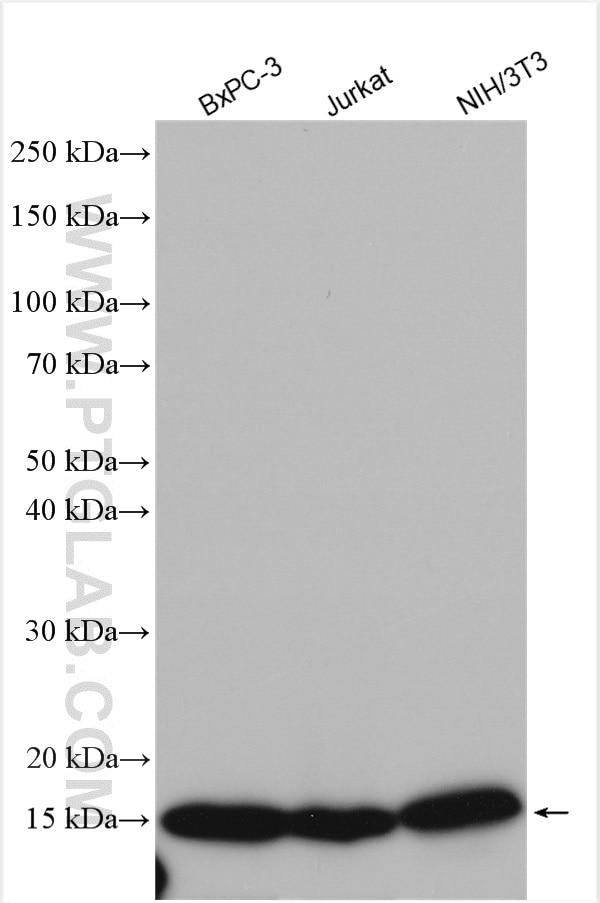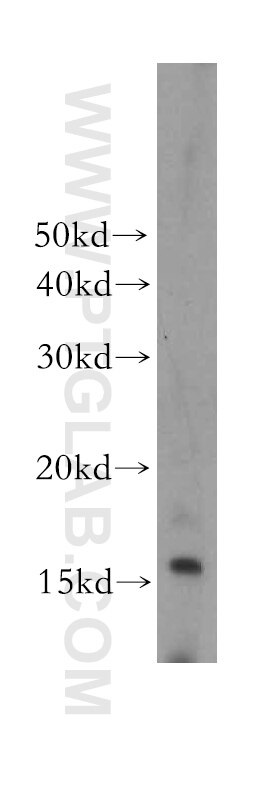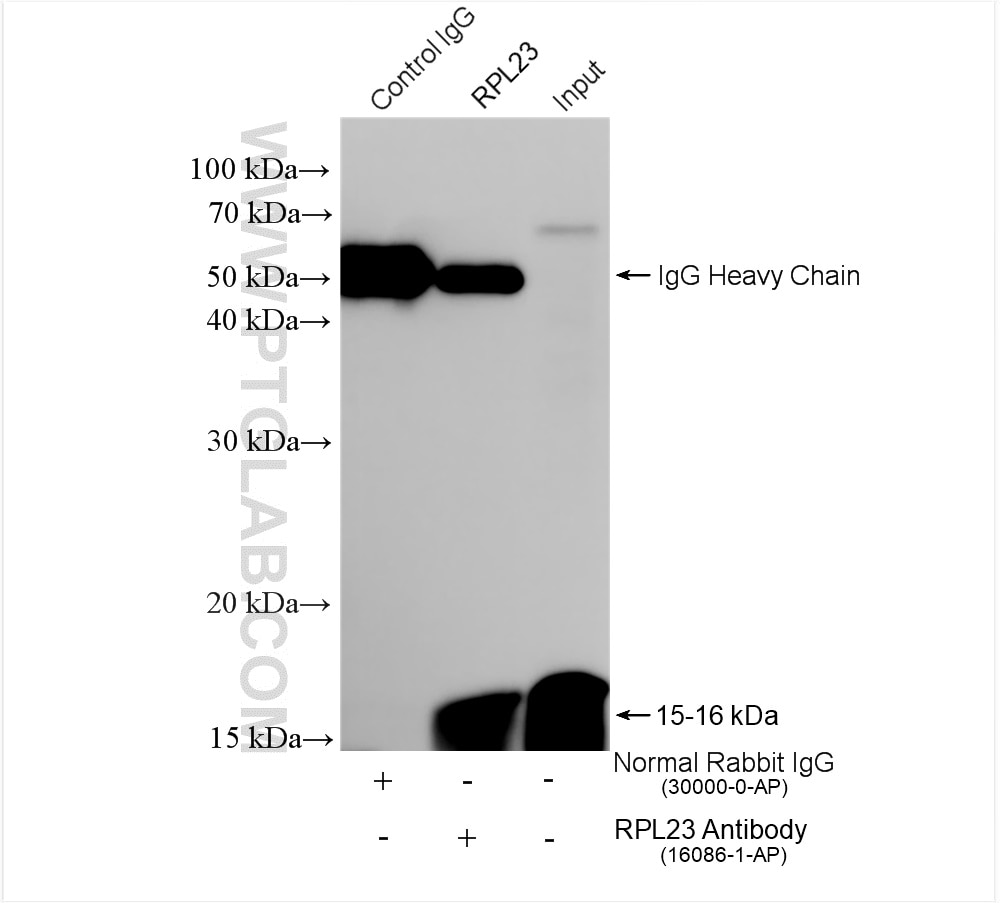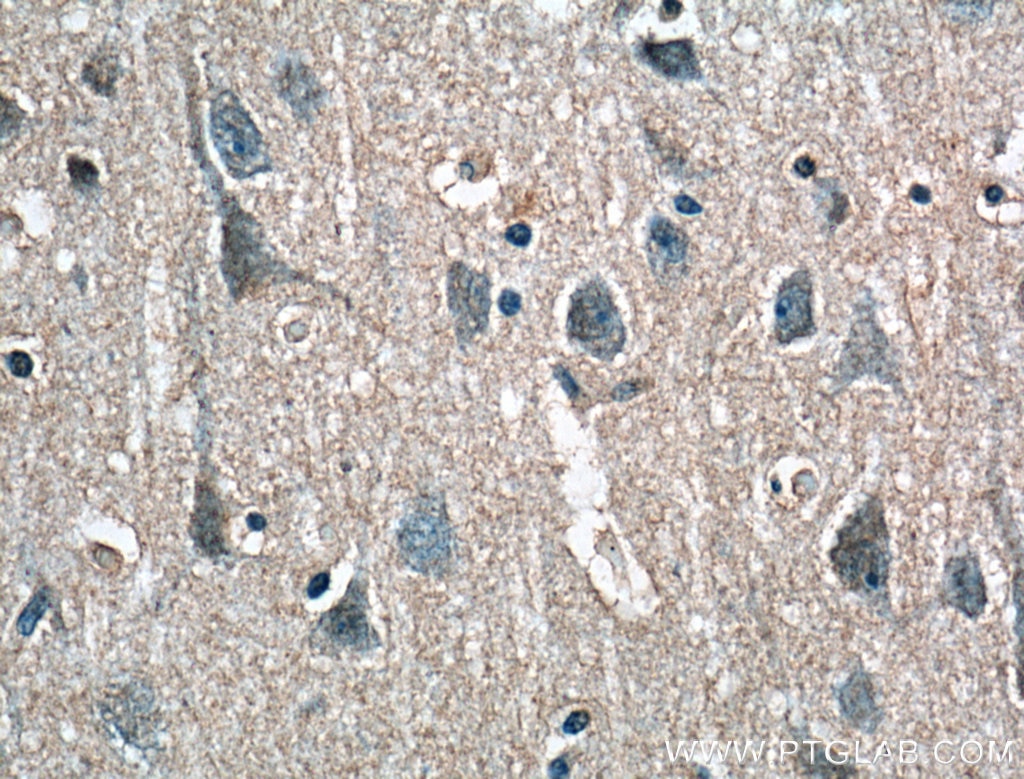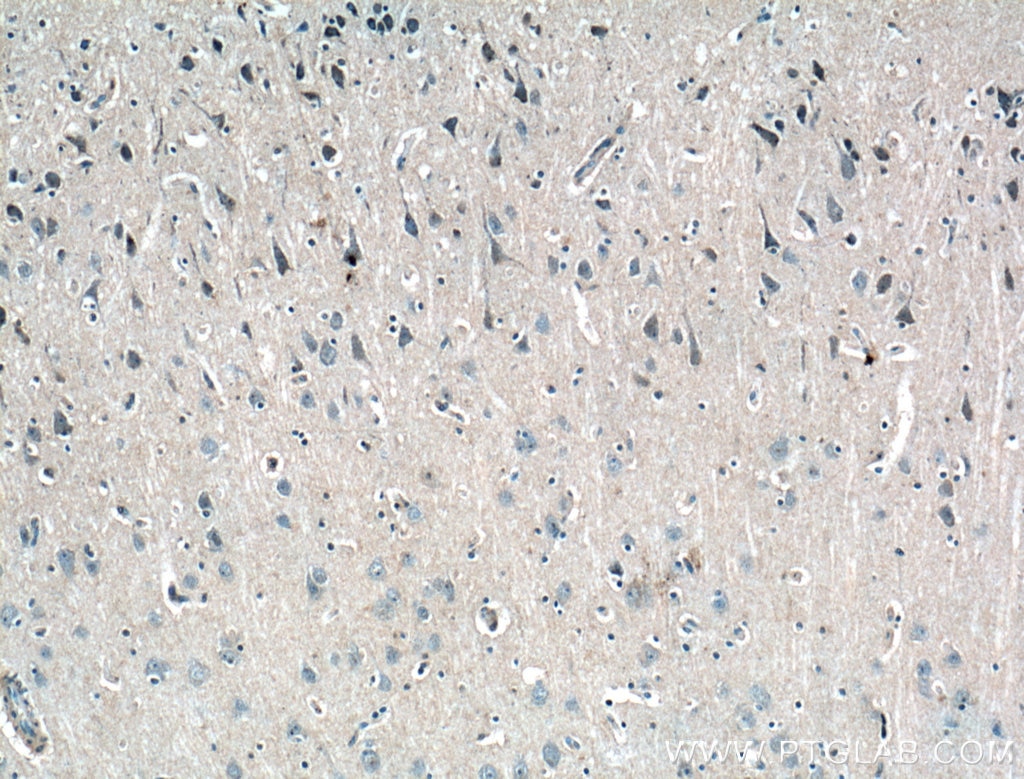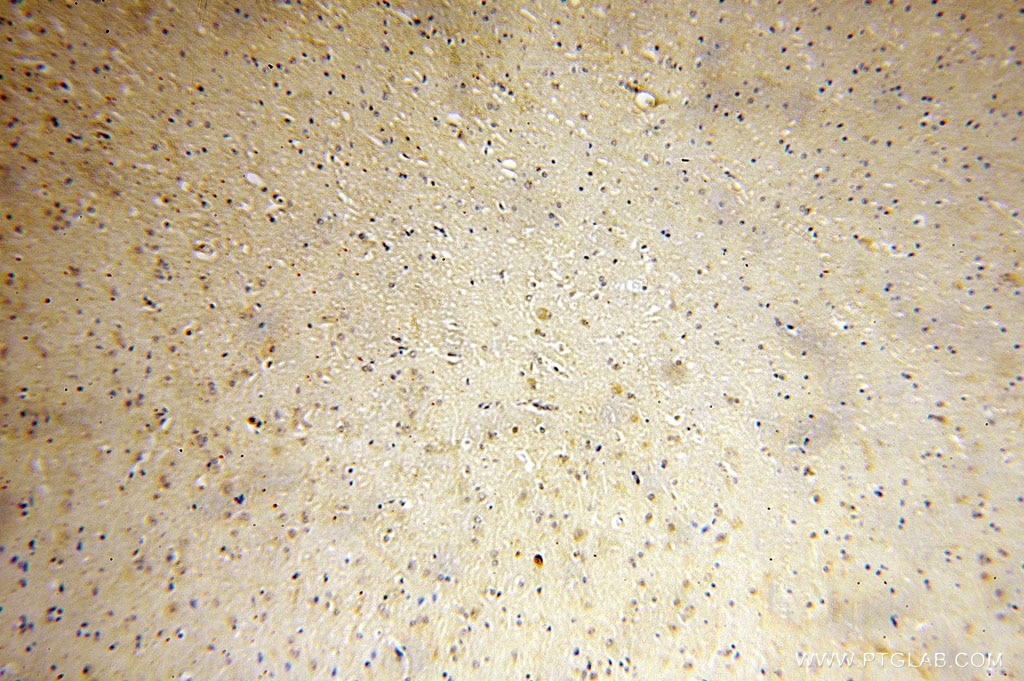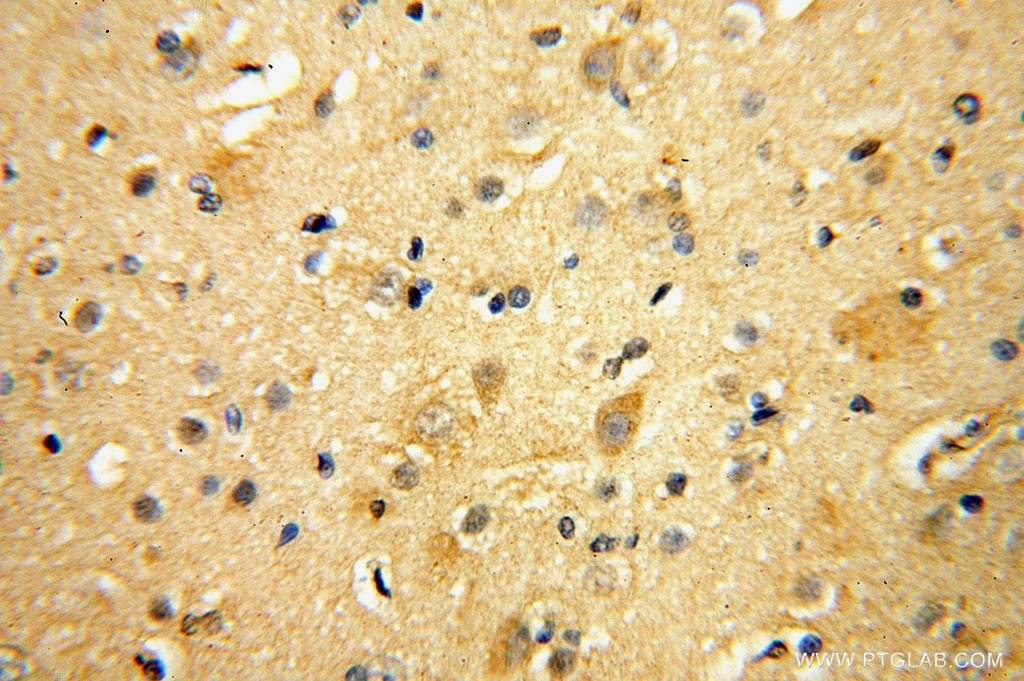- Featured Product
- KD/KO Validated
RPL23 Polyklonaler Antikörper
RPL23 Polyklonal Antikörper für IHC, WB, ELISA
Wirt / Isotyp
Kaninchen / IgG
Getestete Reaktivität
human, Maus, Ratte
Anwendung
WB, RIP, IHC, IF, ELISA
Konjugation
Unkonjugiert
Kat-Nr. : 16086-1-AP
Synonyme
Galerie der Validierungsdaten
Geprüfte Anwendungen
| Erfolgreiche Detektion in WB | BxPC-3-Zellen, Jurkat-Zellen, NIH/3T3-Zellen, PC-3-Zellen |
| Erfolgreiche Detektion in IHC | humanes Hirngewebe Hinweis: Antigendemaskierung mit TE-Puffer pH 9,0 empfohlen. (*) Wahlweise kann die Antigendemaskierung auch mit Citratpuffer pH 6,0 erfolgen. |
Empfohlene Verdünnung
| Anwendung | Verdünnung |
|---|---|
| Western Blot (WB) | WB : 1:500-1:2000 |
| Immunhistochemie (IHC) | IHC : 1:50-1:500 |
| It is recommended that this reagent should be titrated in each testing system to obtain optimal results. | |
| Sample-dependent, check data in validation data gallery | |
Veröffentlichte Anwendungen
| KD/KO | See 2 publications below |
| WB | See 9 publications below |
| IHC | See 6 publications below |
| IF | See 2 publications below |
| RIP | See 1 publications below |
Produktinformation
16086-1-AP bindet in WB, RIP, IHC, IF, ELISA RPL23 und zeigt Reaktivität mit human, Maus, Ratten
| Getestete Reaktivität | human, Maus, Ratte |
| In Publikationen genannte Reaktivität | human, Maus, Ratte |
| Wirt / Isotyp | Kaninchen / IgG |
| Klonalität | Polyklonal |
| Typ | Antikörper |
| Immunogen | RPL23 fusion protein Ag9120 |
| Vollständiger Name | ribosomal protein L23 |
| Berechnetes Molekulargewicht | 140 aa, 15 kDa |
| Beobachtetes Molekulargewicht | 15 kDa |
| GenBank-Zugangsnummer | BC010114 |
| Gene symbol | RPL23 |
| Gene ID (NCBI) | 9349 |
| Konjugation | Unkonjugiert |
| Form | Liquid |
| Reinigungsmethode | Antigen-Affinitätsreinigung |
| Lagerungspuffer | PBS mit 0.02% Natriumazid und 50% Glycerin pH 7.3. |
| Lagerungsbedingungen | Bei -20°C lagern. Nach dem Versand ein Jahr lang stabil Aliquotieren ist bei -20oC Lagerung nicht notwendig. 20ul Größen enthalten 0,1% BSA. |
Hintergrundinformationen
Ribosomes, the organelles that catalyze protein synthesis, consist of a small 40S subunit and a large 60S subunit. Together these subunits are composed of 4 RNA species and approximately 80 structurally distinct proteins [PMID:9582194]. RPL23 is a component of the 60 S large ribosomal subunit that interacts functionally with murine double minute 2 protein (MDM2 or HDM2 in humans). Upon binding to MDM2, RPL23 inhibits MDM2-mediated p53 degradation, thus activating p53 and inducing cellular apoptosis [PMID:15314174]. Intriguingly, RPL23 has also been suggested to be a negative regulator of apoptosis by suppressing the Miz1-induced transcription of the cell cycle inhibitors p15INK4B and p21CIP1[PMID:19160485].
Protokolle
| Produktspezifische Protokolle | |
|---|---|
| WB protocol for RPL23 antibody 16086-1-AP | Protokoll herunterladen |
| IHC protocol for RPL23 antibody 16086-1-AP | Protokoll herunterladen |
| Standard-Protokolle | |
|---|---|
| Klicken Sie hier, um unsere Standardprotokolle anzuzeigen |
Publikationen
| Species | Application | Title |
|---|---|---|
Nat Cell Biol LIN28 phosphorylation by MAPK/ERK couples signalling to the post-transcriptional control of pluripotency. | ||
EMBO J Decreased synthesis of ribosomal proteins in tauopathy revealed by non-canonical amino acid labelling. | ||
Sci Rep Ribosomal protein L23 negatively regulates cellular apoptosis via the RPL23/Miz-1/c-Myc circuit in higher-risk myelodysplastic syndrome.
| ||
Front Oncol Ribosomal Protein L23 Drives the Metastasis of Hepatocellular Carcinoma via Upregulating MMP9.
| ||
J Alzheimers Dis Tobacco Smoke Exposure Impairs Brain Insulin/IGF Signaling: Potential Co-Factor Role in Neurodegeneration |
